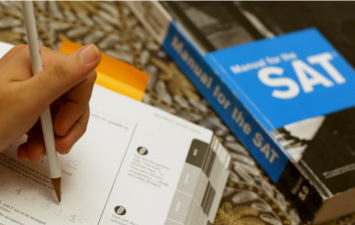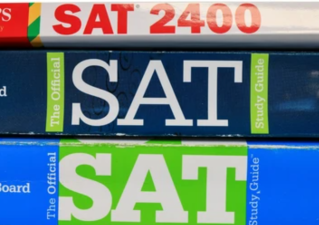The number of international students applying for undergraduate programs in American universities is increasing, but some experts say that the importance of SAT scores has weakened in the admissions process of American universities. SAT scores are a necessary condition for applying for undergraduate programs in the United States. Due to the economic crisis, the US economy is in recession, and the funding given to universities by various state governments is constantly decreasing. This is reflected in both public and private universities, so the "enrollment expansion" of American universities is inevitable, which also provides more learning opportunities for international candidates.

Why has the SAT fallen out of favor?
Why has SAT, a once highly sought-after standardized test, gradually lost favor?
SAT, the full name of Scholastic Aptitude Test, was once an important reference standard for admission to many universities, but with the changes of the times, its status seems to be shaking.
The advancement of globalization and diversification has led more and more schools and institutions to seek more comprehensive and closer assessment methods to students' actual abilities. Although SAT can reflect certain academic abilities, it is inevitably too single.
In addition, the "falling out of favor" of SAT is also related to people's concern about educational fairness. Some people believe that the SAT focuses too much on memorization and test-taking skills rather than real ability and potential.
Secondly, students' application strategies have changed. Without SAT scores as an important reference, students pay more attention to showing their strengths in other aspects. They actively participate in various extracurricular activities, scientific research projects, community services, etc., trying to enrich their application materials through rich and diverse experiences. This has led to an increasingly serious phenomenon of homogeneity in application materials, and admissions officers face greater challenges when reviewing materials.
Furthermore, the admission standards have become more diversified and vague. When recruiting students, the Ivy League emphasizes a comprehensive assessment of students' comprehensive qualities, including academic ability, leadership, creativity, social responsibility and other aspects. However, these standards are often difficult to quantify, and different admissions officers may have different interpretations of the same application materials. This leads to uncertainty in the admission results, and it is difficult for students to accurately grasp their chances of being admitted.
Considerations behind the admission mystery
Although the influence of the SAT has weakened, the Ivy League still has a complex and rigorous consideration system in the admission process.
Academic performance is still the foundation. Although SAT scores are no longer a must, students' high school transcripts, course difficulty, etc. are still important bases for measuring their academic ability. Ivy League schools hope that admitted students can challenge difficult courses in high school and achieve excellent results, which shows that they have the potential to continue their studies in college.
Personal traits and potential are highly concerned. Admissions officers will deeply understand students' personalities, interests, values, and future development plans through personal statements, letters of recommendation, etc. in application materials. They hope to admit students with unique personalities, innovative thinking, and leadership potential. These students can bring new vitality and collision of ideas to the campus during college and achieve outstanding achievements in their future careers.
Social contribution and diversity are also important considerations. The Ivy League is committed to cultivating leaders with social responsibility and global vision, so they will pay attention to students' performance in community service, public welfare activities, etc. At the same time, in order to create a diverse campus environment, the school will also consider factors such as students' race, region, and cultural background, and hope to admit students from different backgrounds to promote cultural exchange and integration.

Suggestions for dealing with "application inflation"
Faced with the "application inflation" and admission mystery of the Ivy League schools in the United States, students and parents need to remain rational and calm and adopt scientific and reasonable application strategies.
Students should focus on their own all-round development. In high school, they should not only study hard and achieve excellent academic results, but also actively participate in various extracurricular activities to cultivate their own interests, hobbies and specialties. By participating in social practice and public welfare activities, they can enhance their sense of social responsibility and teamwork spirit.
Carefully create personalized application materials. When writing a personal statement, you should truly and vividly show your unique experience and growth insights, and avoid stereotyped clichés. The recommendation letter should be written by a teacher or mentor who really knows you, highlighting your strengths and potential.
Rationally plan the school and major you apply for. Don't blindly follow the trend to apply for the Ivy League schools. Choose the school and major that suits you according to your interests, abilities and career plans. At the same time, you can appropriately expand the scope of application to increase your chances of being admitted.
The "application inflation" of the Ivy League schools in the United States and the admission mystery after the cancellation of SAT reflect the changes and development trends of the higher education admissions system. Students and parents need to have a deep understanding of these changes, adjust their application strategies, and face the fierce competition more calmly to realize their dreams of studying abroad.
